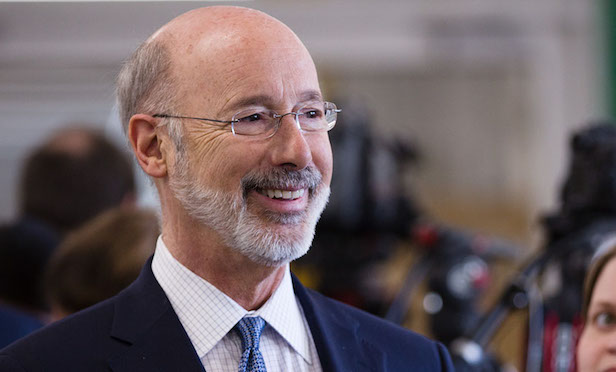HARRISBURG, PA— Pennsylvania Gov. Tom Wolf presented a series of 2020-21 budget proposals on Wednesday totaling more than $1.1 billion geared at reducing the risks of lead and asbestos, and remediating existing toxins in schools, day care centers, homes and public water systems in the state.
Gov. Wolf is proposing that up to $1 billion in grants from the Redevelopment Assistance Capital Program be used for lead and asbestos remediation in schools, a problem plaguing many of the state's aging school buildings.
"Decades ago, well-intentioned Pennsylvanians constructed our homes, schools, waterways and other structures out of asbestos and lead because they were thought to be harmless, even superior materials," Gov. Wolf said. "Now we know the serious harm both can cause. To build a better Pennsylvania, we first need to fix our foundation, which is why the five lead and asbestos removal initiatives I'm outlining today are so important."
Among the other initiatives that are part of the overall plan include having the Department of Human Services work with the Centers for Medicare and Medicaid Services for a Health Services Initiative to improve the health of children and families in Pennsylvania by increasing funding of lead remediation activities in places where children have been exposed to high levels of lead.
Remediation projects could include paint, water, and other sources of contamination. The state is currently contemplating enhancing funding opportunities for current HUD grant recipients statewide, but also building infrastructure in one or two new areas to increase the regions in Pennsylvania ready and able to assist in lead remediation efforts moving forward. Funding will also be made available for training and certification to increase the number of individuals who are EPA-certified to complete lead remediation in areas where there are shortages of individuals to do this work.
The plan is to have the program operational next state fiscal year. With a $4-million state investment, $10 million in federal funding could be leveraged annually for an annual total of $14 million to support efforts around lead remediation, state officials say.
Another component of the plan, made possible by taking advantage of recently passed federal legislation, PENNVEST may be able to free up to $90 million for Pennsylvania to address lead in drinking water by providing grants for lead service line replacement statewide. PENNVEST has proposed to spend the next year working with communities to identify shovel-ready projects that can then be funded in 2021.
© Touchpoint Markets, All Rights Reserved. Request academic re-use from www.copyright.com. All other uses, submit a request to [email protected]. For more inforrmation visit Asset & Logo Licensing.








